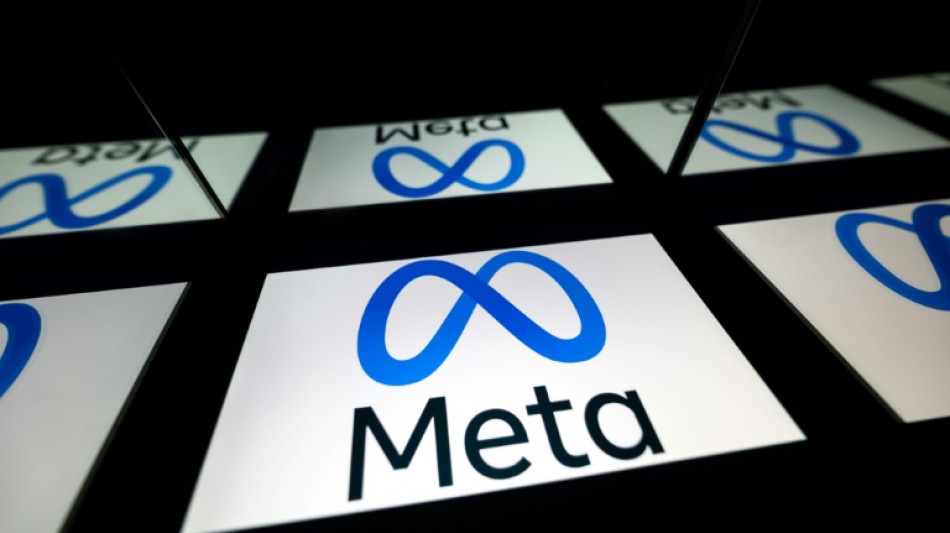
-
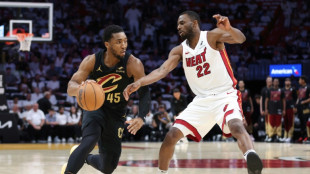 Cavaliers scorch Heat, Warriors down Rockets in thriller
Cavaliers scorch Heat, Warriors down Rockets in thriller
-
Opposition wins Trinidad and Tobago election, returning Persad-Bissessar as PM

-
 Study sheds light on origin of Australia's odd echidna
Study sheds light on origin of Australia's odd echidna
-
France tries Syrian Islamist rebel ex-spokesman on war crime charges

-
 Trump boasts of 'fun' 100 days, but Americans disenchanted
Trump boasts of 'fun' 100 days, but Americans disenchanted
-
Elitist no more, caviar is turning casual

-
 Amnesty accuses Israel of 'live-streamed genocide' against Gaza Palestinians
Amnesty accuses Israel of 'live-streamed genocide' against Gaza Palestinians
-
Inter slump puts season at risk ahead of daunting Barca trip

-
 Power returns to most of Spain, Portugal after massive blackout
Power returns to most of Spain, Portugal after massive blackout
-
'I have hope': Vietnam Babylift survivor's search for birth mother

-
 US climate assessment thrown into doubt as Trump dismisses authors
US climate assessment thrown into doubt as Trump dismisses authors
-
Venezuelan president slams US over little girl's 'abduction'
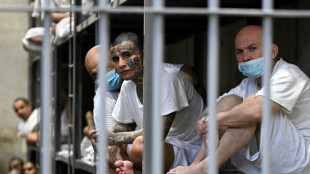
-
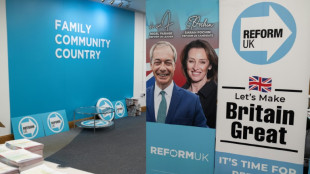 Hard-right upstarts eye big gains in local UK polls
Hard-right upstarts eye big gains in local UK polls
-
Skulls, smoke and spirits: Thai ceremony for the unclaimed dead

-
 Canada's Carney: political newcomer who says he's best in a crisis
Canada's Carney: political newcomer who says he's best in a crisis
-
Cavaliers scorch Heat to seal series sweep
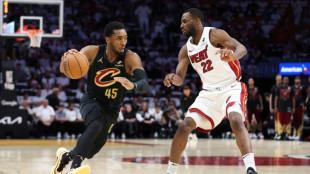
-
 Dead salmon create election stink on Australian island
Dead salmon create election stink on Australian island
-
Mic check: Singapore's podcast boom amplifies opposition voices

-
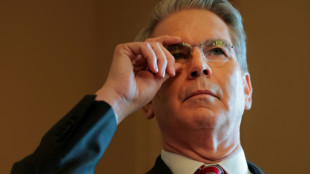 Markets rise as traders gear up for earnings, key jobs data
Markets rise as traders gear up for earnings, key jobs data
-
Congress passes 'revenge porn' ban, sending it to Trump
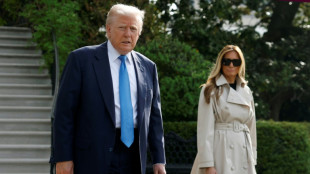
-
 Spain and Portugal work to restore power after massive blackout
Spain and Portugal work to restore power after massive blackout
-
Less-thirsty rice offers hope in drought-stricken Chile

-
 Yamal stardust could give Barca edge on Inter Milan
Yamal stardust could give Barca edge on Inter Milan
-
Trump targets US 'sanctuary cities' in migrant crackdown
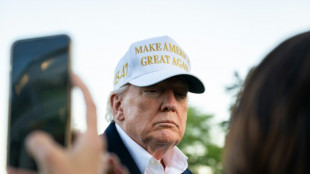
-
 Mexico agrees to send water to US after Trump threatens tariffs
Mexico agrees to send water to US after Trump threatens tariffs
-
Amazon launches first Starlink-rival internet satellites
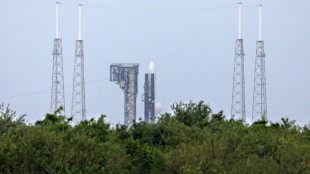
-
 US lost seven multi-million-dollar drones in Yemen area since March
US lost seven multi-million-dollar drones in Yemen area since March
-
Bucks blow as Lillard suffers torn Achilles: team

-
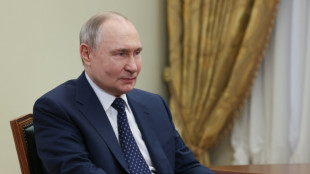 Putin orders three-day truce amid new US warnings
Putin orders three-day truce amid new US warnings
-
Real Madrid's Ancelotti agrees Brazil deal - reports
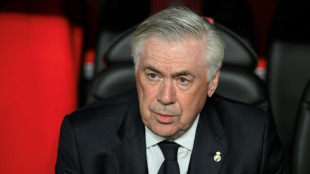
-
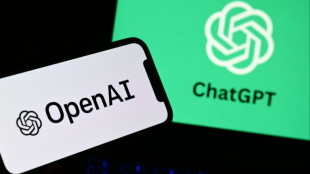 ChatGPT adds shopping help, intensifying Google rivalry
ChatGPT adds shopping help, intensifying Google rivalry
-
Global stocks mixed amid trade hopes as markets await tech earnings

-
 Commanders heading back to D.C. after inking $3.7 bln stadium deal
Commanders heading back to D.C. after inking $3.7 bln stadium deal
-
US warplane falls off aircraft carrier into Red Sea

-
 Feisty Arteta urges Arsenal fans to 'bring boots' to PSG Champions League clash
Feisty Arteta urges Arsenal fans to 'bring boots' to PSG Champions League clash
-
Bucks blow as Lillard suffers ruptured Achilles: reports

-
 No power, no phone, no transport -- Spain in a panic
No power, no phone, no transport -- Spain in a panic
-
US warplane went overboard into Red Sea: Navy

-
 'Like a dream' as IPL's 14-year-old Suryavanshi becomes youngest to hit T20 ton
'Like a dream' as IPL's 14-year-old Suryavanshi becomes youngest to hit T20 ton
-
Luis Enrique says PSG have improved since October Arsenal loss

-
 UN food, refugee agencies warn of huge cuts after funding losses
UN food, refugee agencies warn of huge cuts after funding losses
-
Trump trade war dominates BRICS meeting in Brazil

-
 Rashford expected to miss rest of Aston Villa season
Rashford expected to miss rest of Aston Villa season
-
IPL's 14-year-old Suryavanshi youngest to hit T20 ton as Rajasthan rule

-
 Halle Berry, Jeremy Strong to join Cannes film festival jury: organisers
Halle Berry, Jeremy Strong to join Cannes film festival jury: organisers
-
Klopp congratulates Liverpool on Premier League triumph

-
 Violence-weary Trinidadians vote in general election
Violence-weary Trinidadians vote in general election
-
Abuse scandal in focus in search for new pope

-
 Prince William and Kate mark wedding anniversary in Scotland
Prince William and Kate mark wedding anniversary in Scotland
-
Amazon set for launch of Starlink-rival satellites
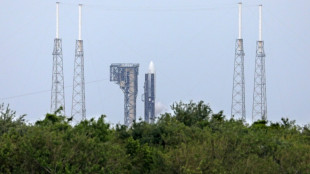

Meta subscriber plan risks digital divide, say critics
Years after Facebook quietly removed a slogan that declared the site was "free and always will be", parent company Meta announced on Sunday a paid-for subscription service that has already been widely criticised.
Meta is following a well-trodden path to subscription services, with rivals from Reddit and Snapchat to Twitter and Discord already in the game.
But critics raised deep concerns with the way Meta had chosen to structure its new offering, which will cost $11.99 for web or $14.99 for mobile.
The firm said subscribers would get a verification badge, extra protection against impersonation, direct access to customer support and more visibility.
Online safety expert Kavya Pearlman was unimpressed with the idea of paying for protection, which she said would create a "digital caste system" of haves and have-nots.
"Safety and security features must NOT be up for sale," she tweeted, suggesting "dude bro CEOs" should charge the impersonators rather than squeezing money from customers who already pay with their personal data.
The Real Facebook Oversight Board, a lobby group highly critical of Meta, tweeted: "Now Facebook wants you to fund the harmful model that fuels its whole business."
- Copying Musk -
And there were wider concerns from Sinan Aral, a professor at Massachusetts Institute of Technology (MIT) who conducted a two-year experiment analysing the effects that account labelling had on online behaviour.
He said his study showed that "identity cues" like Twitter Blue or Meta Verified could lead to more "knee jerk" reactions, a divide between "in groups and out groups" and an intensified focus on personalities over content.
Financial analysts said the new models being tested by social media companies would not -- in the short-term at least -- come close to generating the tens of billions that the likes of Meta make from advertising.
"We don't expect the new account verification service to surpass more than one to two percent of total revenue over the next 18 months," said Angelo Zino of CFRA research.
He said Meta was likely to continue its hunt for other ways to monetise its two billion users, with other big players like Netflix likely to take chunks out of its ad revenue in the coming years.
- 'Risky' for Meta -
Meta's new service will be rolled out in Australia and New Zealand before it hits the rest of the world.
The announcement was greeted online with trolling and memes ridiculing Meta boss Mark Zuckerberg for lifting ideas from his Twitter counterpart Elon Musk.
"Inevitable," replied Musk to one such message.
Zuckerberg will be hoping for a smoother ride than Musk faced when he rolled out Twitter Blue, only to recall it as the platform was flooded with impersonation accounts.
However, Matt Navarra, a social media consultant, flagged that Instagram had announced the move before Zuckerberg.
He suggested the launch had been "a bit unplanned and last minute".
"For most Meta users, whether on Facebook or Insta, this new offer is likely to be greeted with a shrug of indifference," said Susannah Streeter of Hargreaves Lansdown.
She said small businesses and higher profile people might be tempted to pay to protect themselves from hacks or impersonators, or get better visibility.
But Dan Ives of Wedbush securities reckoned the move was "risky" for Meta.
"There could be clear backlash from consumers that will never pay a dime for Facebook or Instagram and this move could push them out the door," he said.
H.E.Young--AMWN